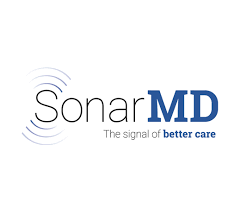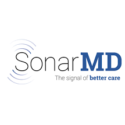
29 May DDW2024: SonarMD Program Reduced ER Visits and Health Care Costs for IBD Patients
MedicalResearch.com Interview with:

Dr. Kosinski
Dr. Larry Kosinski, MD
Gastroenterologist and SonarMD Founder & Board Member
MedicalResearch.com: What is the background for this study? Would you briefly explain what is meant by the IBD group of diseases?
Response: Affecting up to 70 million Americans, the U.S. spends $136 billion each year on digestive health as these conditions are complex to predict, treat and manage. Inflammatory Bowel Disease (IBD) includes people specifically diagnosed with either ulcerative colitis or Crohn’s disease, and these conditions require close monitoring to reduce the risk for complications that lead to lengthy hospital stays and significant medical spend. In addition to providing a holistic health program, the SonarMD digital platform risk stratifies patients and performs continuous symptom checks to identify deteriorating symptoms sooner and communicate changes to physicians, meaning that care teams can intervene faster to keep patients healthier and lower the overall cost of care.
The two large, longitudinal studies that we presented at Digestive Disease Week 2024 evaluated several major drivers of medical costs in people living with IBD and enrolled in the SonarMD end-to-end, digital care coordination program to determine if SonarMD’s program reduced healthcare utilization and concurrently produced better health outcomes. To assess this, we looked at Emergency Department visits and In-patient Admissions compared to risk-matched control groups.
MedicalResearch.com: What are the main findings?
Response: Although we presented two different studies, both reported a statistically significant and substantial decline in Emergency Department visits and In-patient Admissions compared to risk-matched control groups. The risk score is based on the Centers for Medicare and Medicaid Services (CMS) Hierarchical Condition Category (HCC) risk model, which estimates future health care costs for patients, with additional IBD specific categories to better reflect cost and utilization variance for members with IBD.
Study One: Hospital Visits Significantly Reduced Across a Two-Year Period
In this retroactive, 24-month study, researchers compared key drivers of medical costs in a SonarMD engaged population of 495 patients with IBD from three New Jersey-based medical practices against a risk-matched, control population of 2,695 patients with identical plan coverage where the SonarMD platform was not deployed. All percentages are calculated per 1,000 members.
Study One Results:
- In year 1 (2021), the rate of IBD-related emergency department visits for the SonarMD cohort was 18% lower than the control group and in year 2 (2022) the rate was 46% less than the control group (p=0.003).
- In year 1, the rate of IBD-related inpatient admissions for the SonarMD cohort was 20% lower than the control group and in year 2 the rate was 78% lower as compared with the control group (p=0.008).
Study Two: Large 12-Month Study Confirms Reduced Healthcare Utilization Among IBD Patients
In this 12-month retrospective study, researchers compared 1,008 Minnesota-based IBD patients enrolled in SonarMD to 1,657 risk score-matched unenrolled IBD patients from a single major health plan. All percentages are calculated per 1,000 members.
Study Two Results:
- The rate of disease related emergency department admits for SonarMD patients was 15% lower than the control group (p=0.0002)
- The rate of disease related inpatient admits for SonarMD patients was 14% lower than the control group (p=0.005)
Notably, data collected in our second study stems from a sophisticated gastroenterology practice where there is a dedicated IBD team with imbedded protocols. Yet, even with comprehensive protocols in place (where the percentage decrease in ED visits and in-patient admittance is lower in this better controlled patient population), the SonarMD group still experienced a statistically significant reduced rate of complications that required emergency room visits and hospital admittance.
MedicalResearch.com: What is SonarMD and how readily can the SonarMD platform be incorporated into existing medical record algorithms?
 Response: SonarMD supports patients’ outcomes by entering risk bearing value-based care arrangements with major health plans and their contracted gastroenterology practices, who then offer the digital, web-based platform at no cost to their patients. Using predictive analytics and human support, the SonarMD digital platform identifies clinical deterioration and makes it easier for patients and specialists to proactively address problems before they become health emergencies.
Response: SonarMD supports patients’ outcomes by entering risk bearing value-based care arrangements with major health plans and their contracted gastroenterology practices, who then offer the digital, web-based platform at no cost to their patients. Using predictive analytics and human support, the SonarMD digital platform identifies clinical deterioration and makes it easier for patients and specialists to proactively address problems before they become health emergencies.
In addition to symptoms tracking, patients have access to holistic health programs, including diet and nutrition counseling, emotional health services and sleep improvement interventions that improve their overall quality of life while living with a chronic disease. SonarMD is sponsored by payers, so in states where existing payer contracts are established, GI providers are invited to enroll patients. Although not integrated into electronic health records, the digital platform is directly integrated into GI practices, allowing gastroenterologists to monitor their patients directly, regularly and in-between appointments as they input their data.
MedicalResearch.com: What should readers take away from your report?
Response: The length and size of these studies provided a volume of data that definitively shows that we can improve patient outcomes simply by keeping closer tabs on IBD symptoms in between appointments. When we empower both patients and physicians to proactively address deteriorating symptoms, we can reduce the risk for major problems that might require hospital visits and long stays.
In addition to improving patient outcomes, these large studies confirm that SonarMD offers value to health plans who experience significant cost savings through reduced healthcare utilization, which benefits all members of the health plan.
MedicalResearch.com: What recommendations do you have for future research as a results of this study?
Response: We want to better understand our program efficacy beyond health facility utilization by analyzing the indicators of advancing disease. For example, SonarMD’s platform leads to a lower rate of gastrointestinal surgeries, but did not reach statistical significance. With a larger cohort we feel this will be significant. Fewer surgeries indicate an improved quality of life for the patients in the program. This research would further demonstrate the efficacy of our gastrointestinal value-based model and the positive clinical outcomes for patients.
MedicalResearch.com: Is there anything else you would like to add? Any disclosures?
Response: Our mission is to help patients stay healthier and out of the hospital. Our studies confirm patients using a technology-forward, digital, end-to-end, holistic health care coordination program can help people living with IBD stay better connected to their health care team, which is vital for high touch proactive care to catch changes early, lower the risk for serious complications, and reduce hospital visits. From a practice management standpoint, the value-based model also properly aligns incentives in healthcare to achieve and be rewarded for better outcomes while also providing holistic health services that traditionally can be difficult to get reimbursed in a fee for service system.
Disclosures:
Founder, Boardmember, Stockholder: SonarMD
Founder, Stockholder: VOCnomics, LLC
CMO, Stockholder: Jona
Consulting Agreements: Ambulatory Management Solutions, XO Health, Takeda Pharmaceuticals
Councilor for Development and Growth: AGA
Committee Member: Physician Focused Payment Model Technician Advisory Committee (PTAC)
Citation:
Digestive Disease Week DDW 2024
Dr. Lawrence Kosinski
Author(s): Lawrence R. Kosinski, George Pavlou, Nadeem Baig, Charles Accurso, Omer Shahab, Sachin Singh, Leslie Athmer, Siddharth Singh
DDW ePoster Library. Kosinski L. 05/21/2024; 416034; Tu1003
REDUCTION IN COST OF CARE IN PATIENTS WITH IBD IN A LARGE COMMUNITY PRACTICE USING A PROACTIVE PATIENT ENGAGEMENT PLATFORM
Dr. Lawrence Kosinski
Author(s): Lawrence R. Kosinski, Omer Shahab, Sachin Singh, Siddharth Singh
DDW ePoster Library. Kosinski L. 05/21/2024; 416035; Tu1004
The information on MedicalResearch.com is provided for educational purposes only, and is in no way intended to diagnose, cure, or treat any medical or other condition.
Some links may be sponsored. Products are not endorsed.
Always seek the advice of your physician or other qualified health and ask your doctor any questions you may have regarding a medical condition. In addition to all other limitations and disclaimers in this agreement, service provider and its third party providers disclaim any liability or loss in connection with the content provided on this website.
Last Updated on May 29, 2024 by Marie Benz MD FAAD
